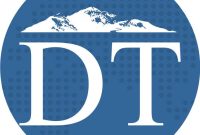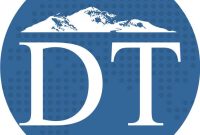The federal government has called upon the International Monetary Fund (IMF) and the World Bank to provide more robust financial support to economies committed to reforms, with a particular emphasis on those in Sub-Saharan Africa.
The significant financial support from the federal government was stated to be provided through novel assistance mechanisms for economies committed to reforms as they pursue ambitious transformations in their economic strategies.
Nigeria’s statement was presented by the Minister of Finance and Coordinator of the Economic Ministry, Wale Edun, during the G-24 Ministerial meeting alongside the ongoing 2023 IMF/World Bank Spring Meetings in Washington D.C.
Speaking before an audience of global financial experts and policymakers, Edun argued for incentivizing nations implementing challenging but essential reforms. He emphasized that it was crucial not only to recognize these reform endeavors but also to enhance accessibility to cost-effective, sustainable funding designed to aid long-term economic shifts within these countries.
The Finance Minister delivered Nigeria’s address in his role both as a national delegate and as the First Vice-Chair of the G-24—an organization comprising developing countries aimed at harmonizing stances on financial and developmental matters.
He stated that under President Bola Ahmed Tinubu’s guidance, Nigeria is undertaking an extensive reform initiative aimed at restoring macroeconomic stability, promoting inclusive development, and setting the nation on course for sustained prosperity.
According to his statement, these steps encompass the elimination of fuel subsidies, the consolidation of various foreign exchange rates into one unified rate, as well as continuous reforms within the taxation framework aimed at expanding the revenue foundation and enhancing overall financial effectiveness.
These choices aren’t simple,” he admitted. “However, they’re crucial for establishing a stronger and more inclusive economic base that benefits every Nigerian.
Eskovitch praised the IMF for establishing a new Sub-Saharan Africa chair recently, which is broadly seen as part of efforts to boost the region’s influence and engagement with the organization. She urged that this progress should be sustained by increasing African presence in key leadership and decision-making positions at the World Bank and IMF.
“Nigeria is open for business,” he declared, reaffirming the country’s readiness to engage with development partners, investors, and multilateral institutions in advancing its economic transformation agenda.
The G-24 Meeting acts as an essential forum where finance ministers and central bank governors from developing nations convene to address shared challenges and develop policy solutions, especially considering the challenging global economic landscape marked by constrained financial circumstances, climate-associated risks, and geopolitical unrest.
EduN’s involvement underscores Nigeria’s ongoing dedication to taking a prominent position in influencing international development discussions. This also ensures their national policies are aligned with worldwide standards for maintaining stability, fostering growth, and achieving sustainable progress.
Provided by Syndigate Media Inc. (
Syndigate.info
).



